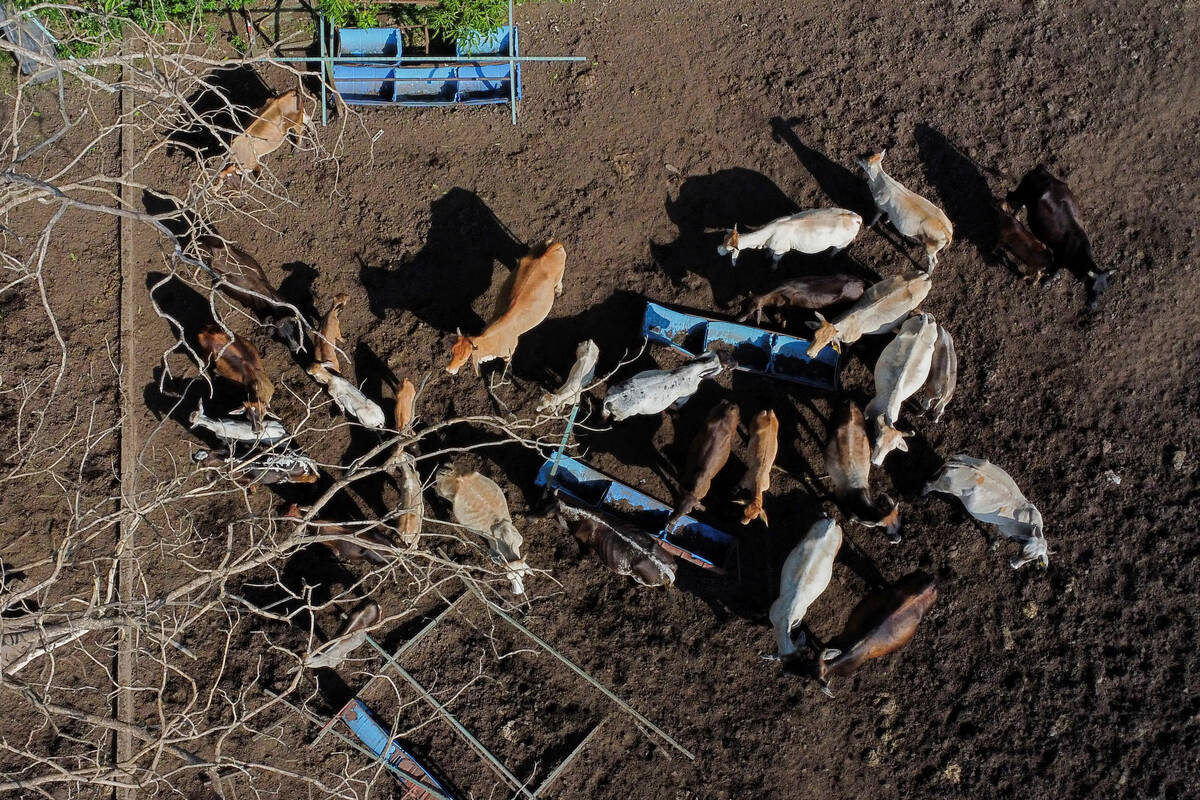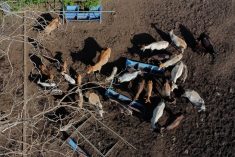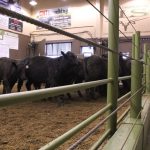American country-of-origin labelling, otherwise known as COOL, may be more harmful to Canadian beef and cattle if U.S. lawmakers revert to an earlier form of the bill, cattle producers say.
COOL regulations being debated as part of the U.S. farm bill would require that livestock be tracked from place of birth to slaughter.
The original proposal would have required that the meat be labelled as wholly raised in the U.S. or not.
Dennis Fuglerud of the Saskatchewan Stock Growers Association said the cattle industry is already challenged by the strong Canadian dollar, high feed prices and the resulting low values paid for fed and stocker calves.
Read Also

Cattle smuggling worsens outbreak in Mexico
Cattle being smuggled across Mexio’s southern border are making a screworm outbreak much more difficult to control.
But the greater threat to his industry is COOL in its original form, he said.
Scott Jones, president of the South Dakota Cattlemen’s Association, said most of his members dislike COOL because of the potential for damage to U.S. domestic consumption.
“Dividing the market is never good. It gives packers, distributors and retailers the opportunity to pit our products against imports,” Jones said.
He said that process could drive down prices for American beef and imports.
Kenny Rogers, president of the Colorado Cattlemen’s Association, said artificial barriers to trade leave American producers vulnerable to sanctions by other countries.
“We need COOL to pass the way it’s now written,” Rogers said.
Jones said if COOL doesn’t pass in its present form, there might be an opportunity to get an amended version introduced as a stand-alone bill or attached to another bill.
“But that takes time and the political will, and right now I don’t know if that’s present in our government,” said Jones.
Although the newest label rules satisfy the U.S. Department of Agriculture, the meat industry and the largest livestock producer groups, a consumers’ organization is opposed.
Urvashi Rangan of Consumers Union, the publisher of the American magazine Consumer Reports, said her organization’s polling shows Americans want to know where their food comes from.
“American consumers, 92 percent of them, care deeply about the history of their food. Country-of-origin labelling is something the meat industry and government needs to deliver,” she said.
Rangan said if an animal was “born in Canada or Mexico and raised in the U.S., then the label needs to reflect that. If it was raised in Canada or Mexico and slaughtered in the U.S., then it should say so. It’s not honest to say something is U.S. if it isn’t fully produced here.”
Steve Dittmer of the Agribusiness Freedom Foundation in Colorado said, “the protectionist mandatory COOL legislation (is) masquerading as a food safety measure, foisting tremendous cost on the entire beef chain for no real consumer benefit. (Most producers see) the importance and win-win benefits from free trade as opposed to cutting off imports and triggering trade wars.”














